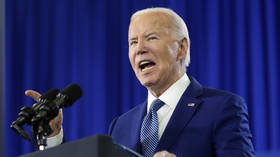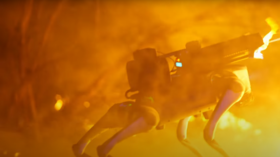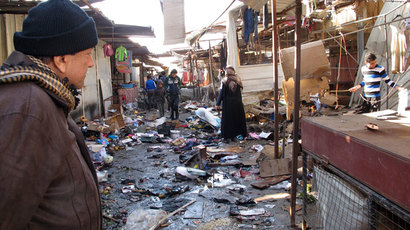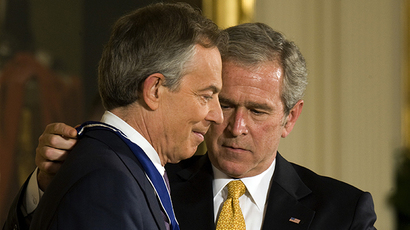Pentagon puts Hellfire missile deliveries to Iraq on fast track
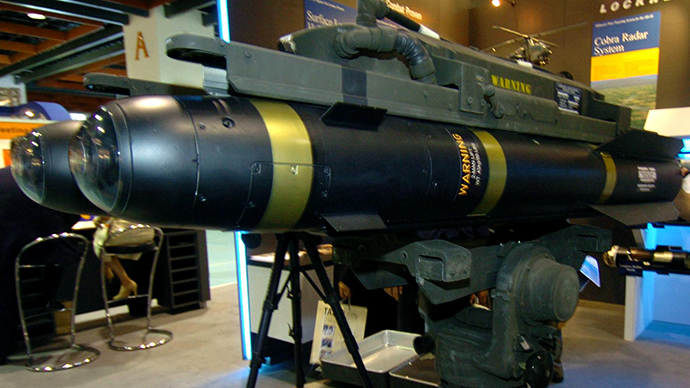
Washington has decided to expedite delivery of missiles and reconnaissance drones to Iraq. The move comes after the US said it would not return to assist Baghdad's forces, despite the country plunging deeper into a fight against Al-Qaeda-linked rebels.
The latest promise of sophisticated military hardware to Iraq, which continues to struggle against an insurgency three years after US forces left the country, comes just one month after the Pentagon already sent 75 Hellfire missiles and surveillance drones to the Iraqi military.
The announcement comes after US Secretary of State John Kerry said that US forces would not return to assist Iraqi security forces.
“This is a fight that belongs to the Iraqis,” Kerry said at the weekend in Jerusalem. “We are not, obviously, contemplating returning. We are not contemplating putting boots on the ground. This is their fight, but we’re going to help them in their fight.”
The Obama administration said it would accelerate the latest cache of military hardware to Iraq as fighting intensifies between government forces and Al-Qaeda linked militants, known as the Islamic State of Iraq and the Levant (ISIL), which last week seized the city of Fallujah in the Anbar Province.
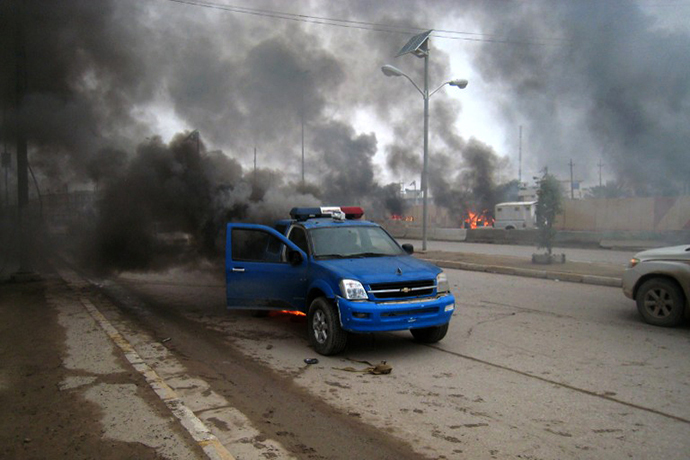
This latest setback in Iraq, already shaken by a relentless wave of violence that has killed thousands of innocent Iraqis, puts Washington in a highly unflattering light: Not only are many Iraqi citizens still questioning why the Bush administration decided to attack their country in 2003, they are equally perplexed over the Obama administration’s decision to withdraw from the country after opening up a sectarian can of worms that did not exist under the late Saddam Hussein.
The White House has been forced to address charges that Al-Qaeda is filling a power vacuum left when US forces departed.
"There was sectarian conflict, violent sectarian conflict in Iraq when there were 150,000 US troops on the ground there," White House spokesman Jay Carney said on Monday.
Meanwhile, in nearby Syria, US policy has supported efforts on the part of the Syrian rebel opposition, which is partially comprised of Al-Qaeda-backed militants, in their fight to overthrow the government of President Bashar Assad.
Amid the mixed signals, Vice President Joe Biden spoke by phone with Iraqi Prime Minister Nuri al-Maliki, and "expressed concern for those Iraqis who are suffering at the hands of terrorists," a statement said.
"Maliki affirmed the importance of working closely with
Iraq's Sunni leaders and communities to isolate extremists."
Biden also spoke with Iraqi Council of Representatives Speaker
Osama al-Nujaifi, where he "praised the recent cooperation
between Iraqi Security Forces and Sunni local, tribal, and
national leaders in the fight against the Islamic State of Iraq
and the Levant currently unfolding in Anbar Province," the
White House said.
"Nujaifi reaffirmed his commitment to Iraq's fight against terrorism," it added.
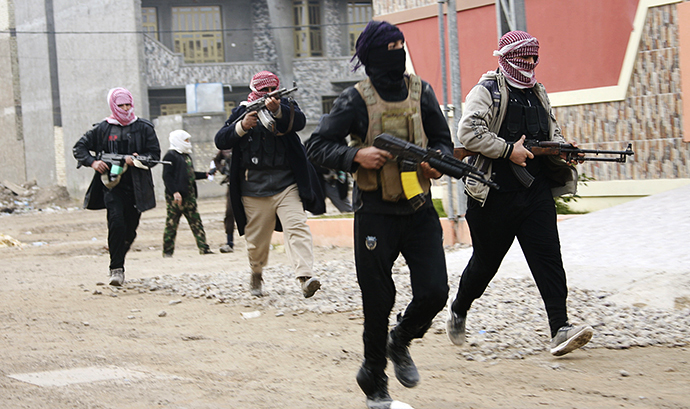
Last week, militants from the Al Qaeda-linked ISIL reclaimed the western Iraqi city, Fallujah, the scene of the bloodiest fighting between American and Al-Qaeda forces.
“Roughly a third of the 4,486 US troops killed in Iraq died in Anbar trying to defeat Al-Qaeda in Iraq, nearly 100 of them in the November 2004 battle for control of Fallujah, the site of America’s bloodiest confrontation since the Vietnam War,” according to The Washington Post.
Colonel Steven Warren said Washington was working with Iraq to develop a "holistic strategy to isolate Al-Qaeda-affiliated groups so the tribes working with the security forces can drive them out of the populated areas."
While not putting “boots on the ground in Iraq,” the Pentagon will continue to provide intelligence to assist and advise the Iraqis at a "ministerial level" through military personnel stationed at the US Embassy in Baghdad, which, at 440,000 square meters, is the largest and most expensive embassy in the world.
Despite the withdrawal of US forces from Iraq, the United States has donated more than $14 billion worth of weapons to the embattled country since 2005.






